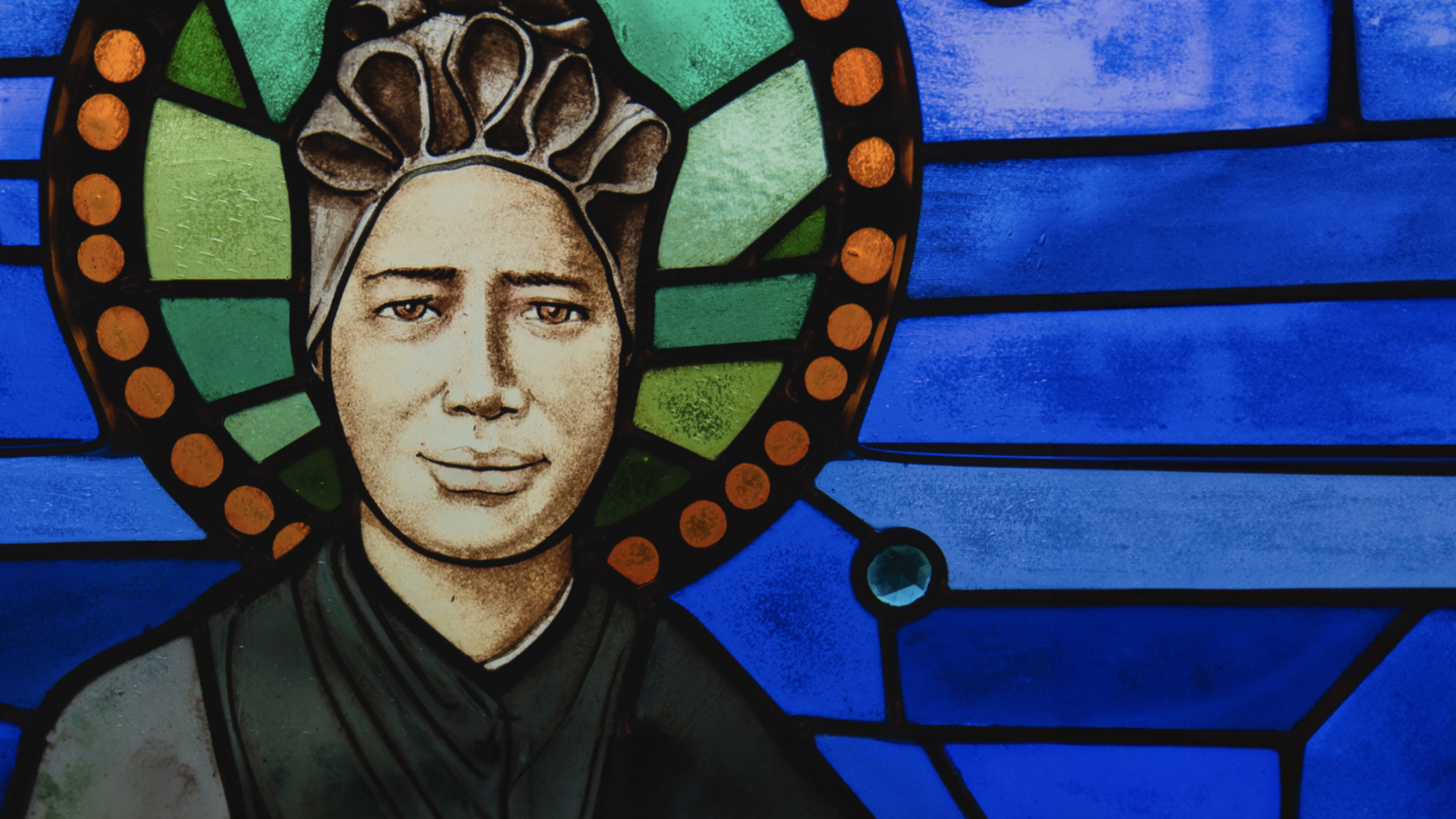The life of St. Josephine Bakhita, whose feast we celebrate on February 8, is one of extraordinary strength in the face of suffering, and of heroic forgiveness in the face of the cruelty of others. This Sudanese saint, who was a niece of the chief of her village, was kidnapped by slave traders in 1877 when she was a young child, only seven or eight years old. She was traumatized, mistreated, and sold many times. On one occasion, she was beaten so badly that she was unable to get out of bed for a month. After being sold to the family of a Turkish general, Josephine was tortured with 114 intricate cuts by a razor blade that her abusive “mistress” filled with salt, leaving permanent scarring across her body.
Eventually, she was enslaved by an Italian vice consul who took her to Italy, where she was a caregiver for his daughter. There, she met the Canossian Sisters in Venice and encountered Christianity. Through these religious sisters, she discovered her identity as a child of God, and when pressed to return to Sudan with the vice consul’s family, refused outright. A legal battle ensued, and the Italian courts ruled that Josephine Bakhita was a free woman in the eyes of the law. She gave her life to Jesus, becoming a Canossian sister herself and serving the Church with all her heart until her death.
During her enslavement, St. Josephine Bakhita endured horrific abuse that most of us would find difficult even to imagine. That she offered forgiveness to her abusers is difficult to fathom (she once said she would kiss the hands of those who had kidnapped and tortured her because during her enslavement she was introduced to Christianity and the Canossian order).
In reading her story, this strength and incredible grace is what always jumped out at me about Bakhita, but it wasn’t until reading Pope Benedict XVI’s Spe Salvi that I came to see her story as a striking example of what the virtue of hope looks like in action.
I am definitively loved and whatever happens to me—I am awaited by this Love. And so my life is good.
In Spe Salvi, Pope Benedict XVI writes: “To come to know God—the true God—means to receive hope.” He illustrates this truth by sharing Josephine’s story, explaining what she had come to know: that God “even knew her, that he had created her—that he actually loved her. . . . She was known and loved and she was awaited. . . . Now she had ‘hope’—no longer simply the modest hope of finding masters who would be less cruel, but the great hope: ‘I am definitively loved and whatever happens to me—I am awaited by this Love. And so my life is good.’ Through the knowledge of this hope she was ‘redeemed,’ no longer a slave, but a free child of God.”
Due to the trauma of her enslavement, St. Josephine did not remember her birth name and had accepted the name “Bakhita”—“fortunate”—given to her by slave traders. While her identity as a noble relation to the village chief was stolen from her, Josephine’s Christian faith offered her an even deeper identity as a daughter of Christ the King. She chose the name of Josephine, a name honoring St. Joseph, who exemplified great hope and whose hope in God motivated all his actions.
We are so prone to thinking of hope as a passive virtue. “I hope such and such happens” we might think to ourselves as we sit idly by, dreaming of something we desire in the future. But hope is the opposite of a passive virtue; it is a virtue, bestowed by God’s grace, that propels us forward, that moves us to act! St. Josephine Bakhita met Jesus Christ, the source of hope, and by finding her true identity—not as an enslaved woman but as a daughter of Christ the King—she was motivated to action. Her hope moved her to stand strong and fight for her freedom and human dignity. The reality of Christ propelled her to act in defiance of the evil of slavery and to become a religious sister with a desire to share Christ’s hope with a suffering world.
If we have the virtue of hope as St. Josephine Bakhita demonstrates for us and as Pope Benedict XVI describes in Spe Salvi, we do not stand idly by in the face of injustice. We bear witness to a deeper reality than the fallen world offers us—a reality anchored in Christ, our Hope. Hope informs not only our identity as beings known and loved by God but highlights the dignity of others who are made in his image and moves us forward in pursuit of truth and justice.
St. Josephine Bakhita, pray for us!
This piece was originally published on February 8, 2021 on Evangelization & Culture Online.
